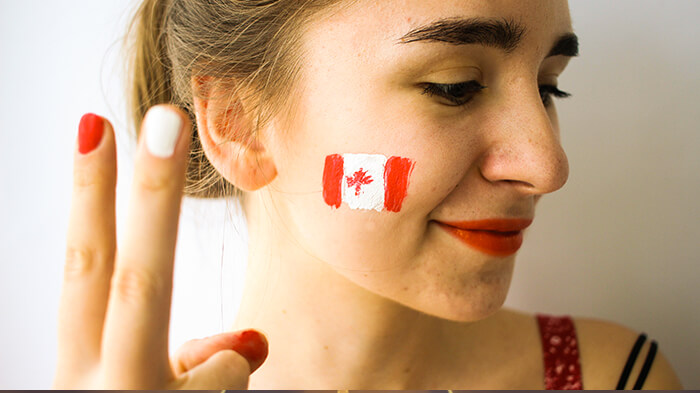There’s something inherently happy-making about being told you’re happy. I mean, what’s more cheerifying than the news that your fellow citizens—and you among them—have been given a berth on a list of the world’s lightest souls?
And so it is with Canadians, who were prominently included recently in a ranking of the world’s happiest people.
This is the 24/7 Wall St. list of the Countries With the Happiest People, a compilation that nominates 10 nations whose residents enjoy the distinction of being more blissed out than everyone else in the world. And Canada clocks in at an impressive number two.
Taking into consideration a range of variables including “life satisfaction”—the cornerstone, say the editors of the list, as it serves as a good proxy for “happiness”—the inventory seeks to cover off the most meaningful factors that play into an individual’s sense of well-being. A country’s economic and socio-political realities, such as its employment rate and debt as a percentage of the GDP, figure prominently. So does the respect a society pays to the notion of work-life balance.
Taken together, the so-called Organization for Economic Co-operation and Development Better Life Index features 11 measures dictating a country’s quality of life, including its housing, employment, attention to the environment, health, income, community and education.
“The happiest people in the developed world get loads of social services without having to work too hard,” the study’s authors write. “Having abundant natural resources, a thriving services sector and a fairly homogeneous population help, as well.”
Accordingly, Denmark is fingered as the happiest country on the planet. This is a nation, the list preamble enthuses, that’s a standout for its prevailing spirit of community. A full 97% of responding Danes report that they have someone other than a family member upon whom they can consistently rely. What’s more, Danish culture and government policy support a happy existence. Denmark’s citizens spend at least 16 hours every week engaged in leisure activity and its government sets aside a full year of paid maternity leave in respect of the most recent additions to its citizenry.
Canada, where a year’s parental leave became standard in 2000, is next on the countdown. This country was singled out for a number of high-scoring metric scores, including life expectancy (the tenth greatest of all OECD countries), health (88% report being in good health, compared to the OECD average of 69%), education (87% of the population has a high school diploma or more; the OECD average is 73%) and literacy (among the highest in the world).
From there, the list continues as follows: Norway, Australia, the Netherlands, Sweden, Switzerland, Finland, Israel and Austria.
The US, for the record, doesn’t even make the happiness cut.
At an Atlanta-based “happiness summit” last fall, much speculation abounded on the true nature of this elusive state. There, the Rabbi Lord Jonathan Sacks offered his take on what happiness isn’t, tsking our tendency to try and buy happiness with things: “If I have a certain amount of money and power and give some to you, I have less. If I have love and happiness and give some to you, I have more. Spiritual happiness is the world’s greatest renewable energy.”

